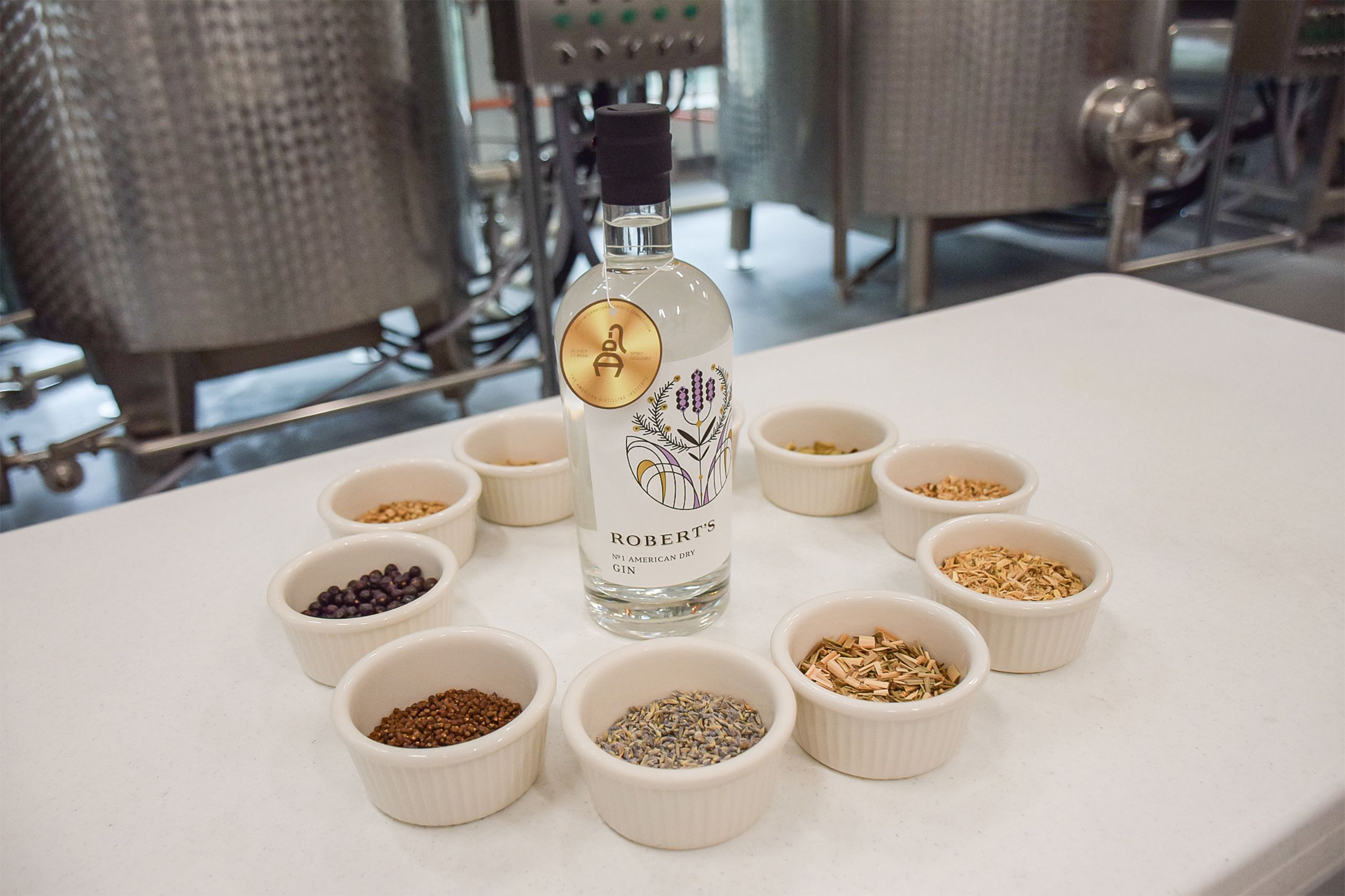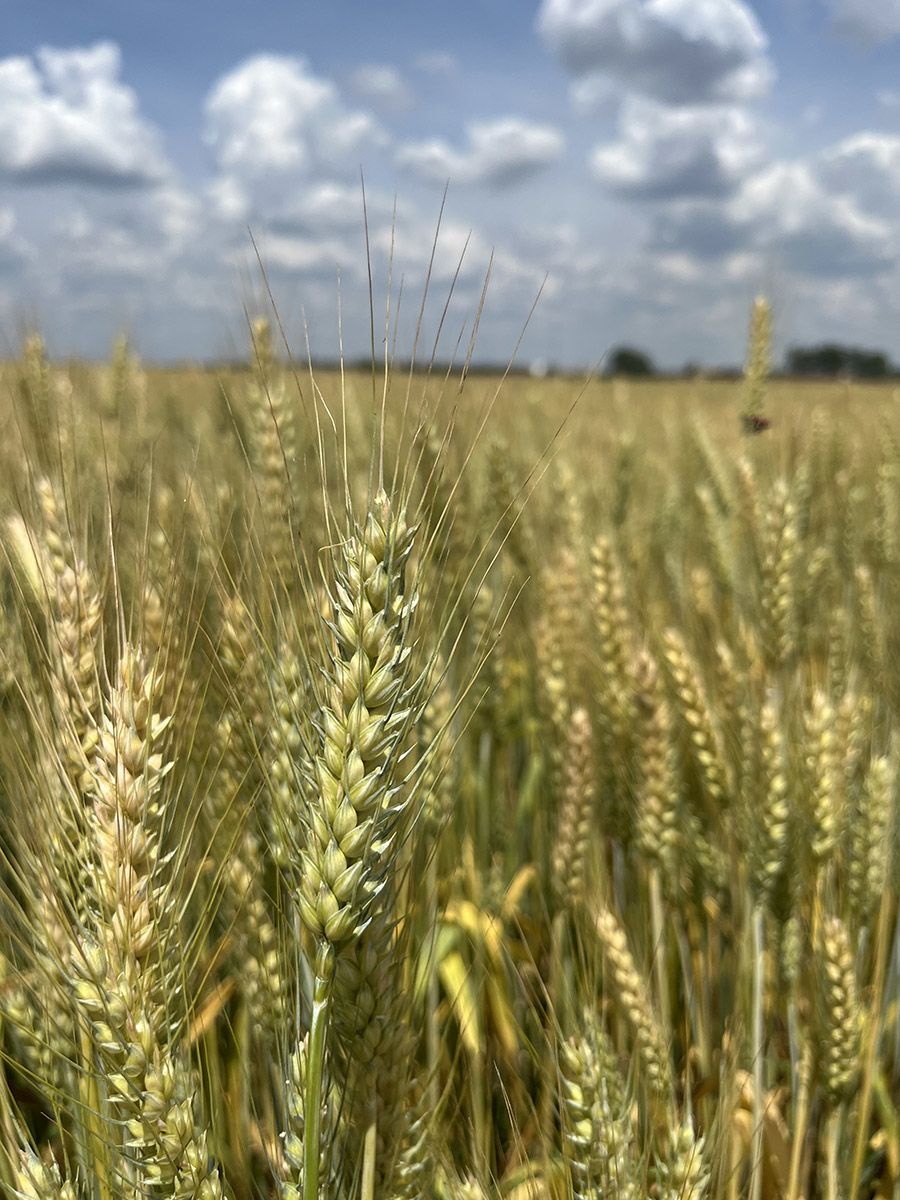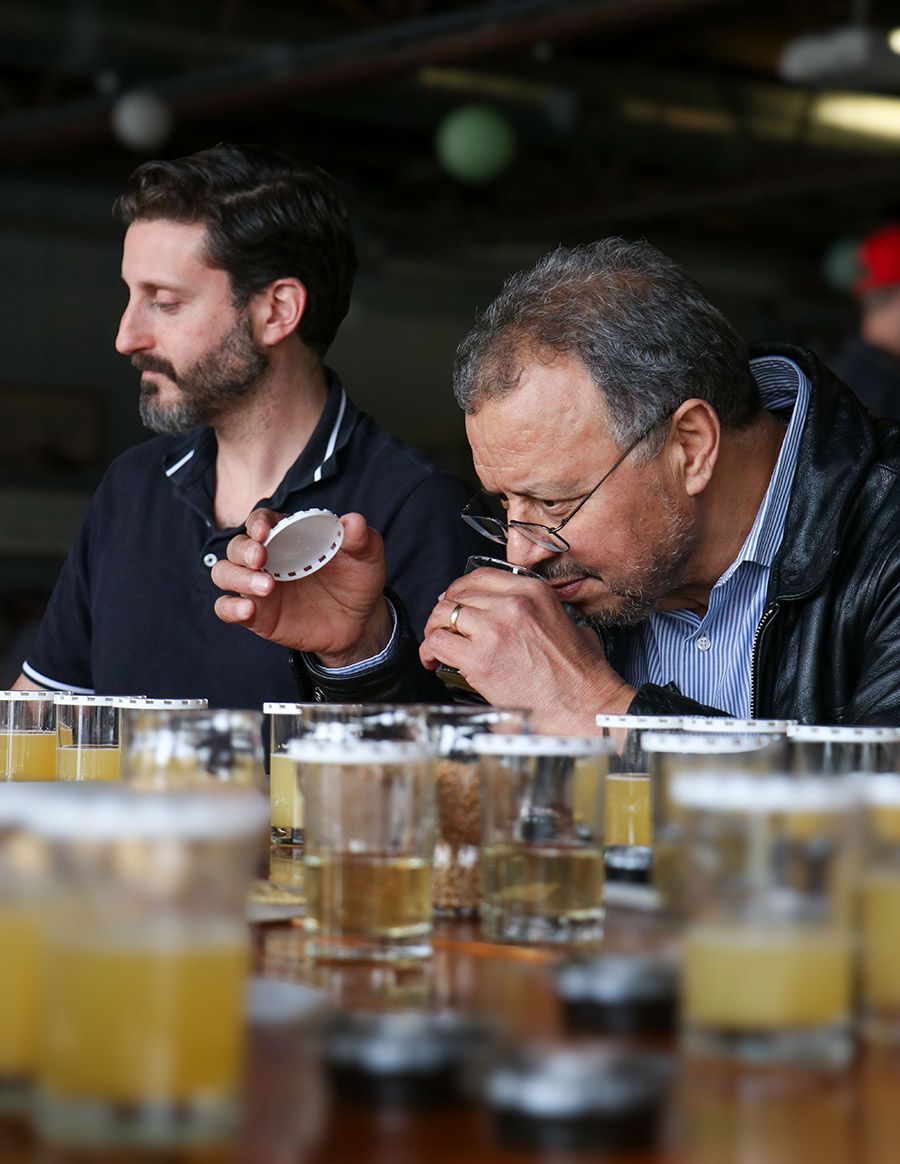That's the Spirit
Raise a glass to celebrate the field of fermentation with stories from CAES faculty and alumni
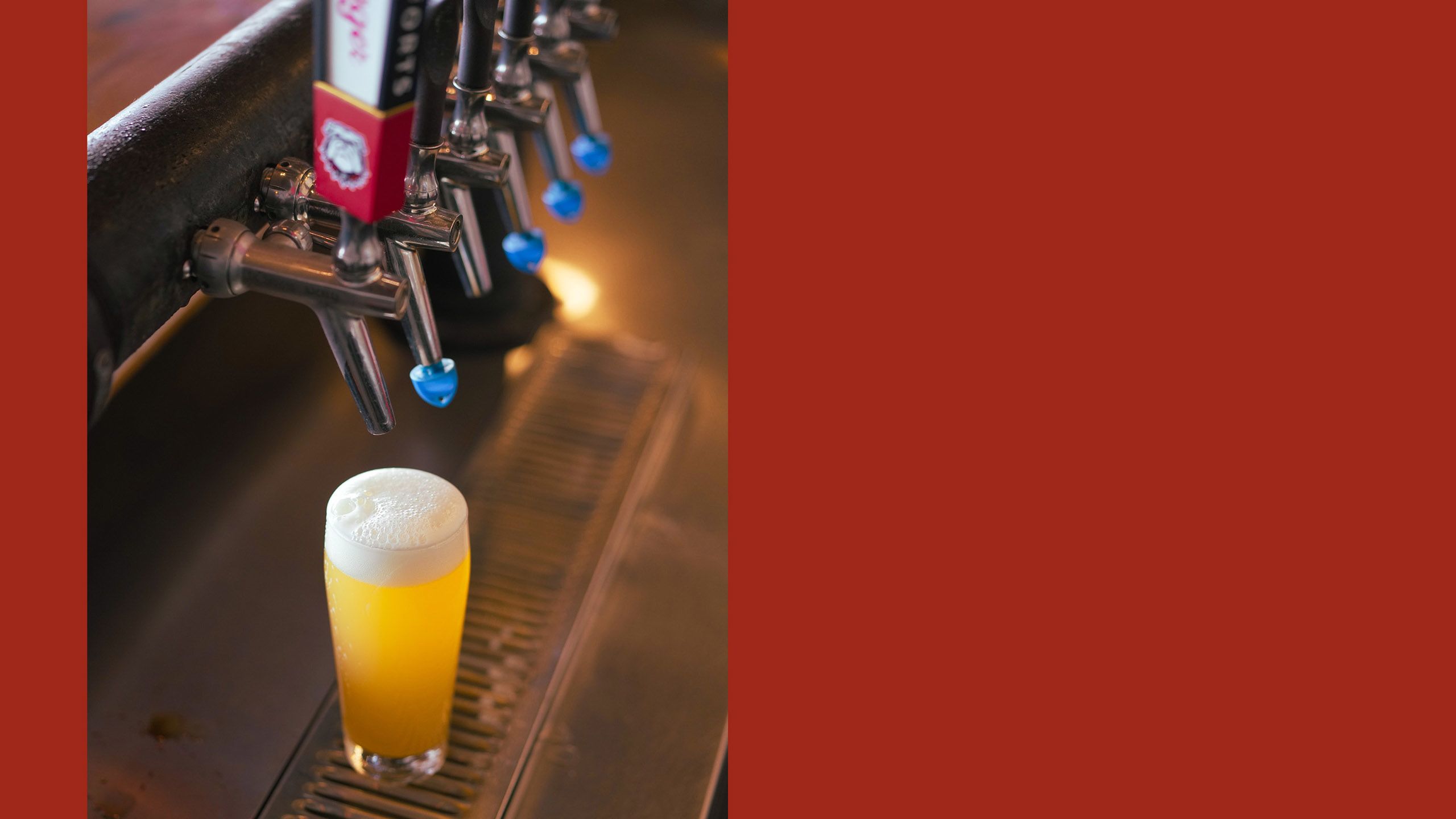
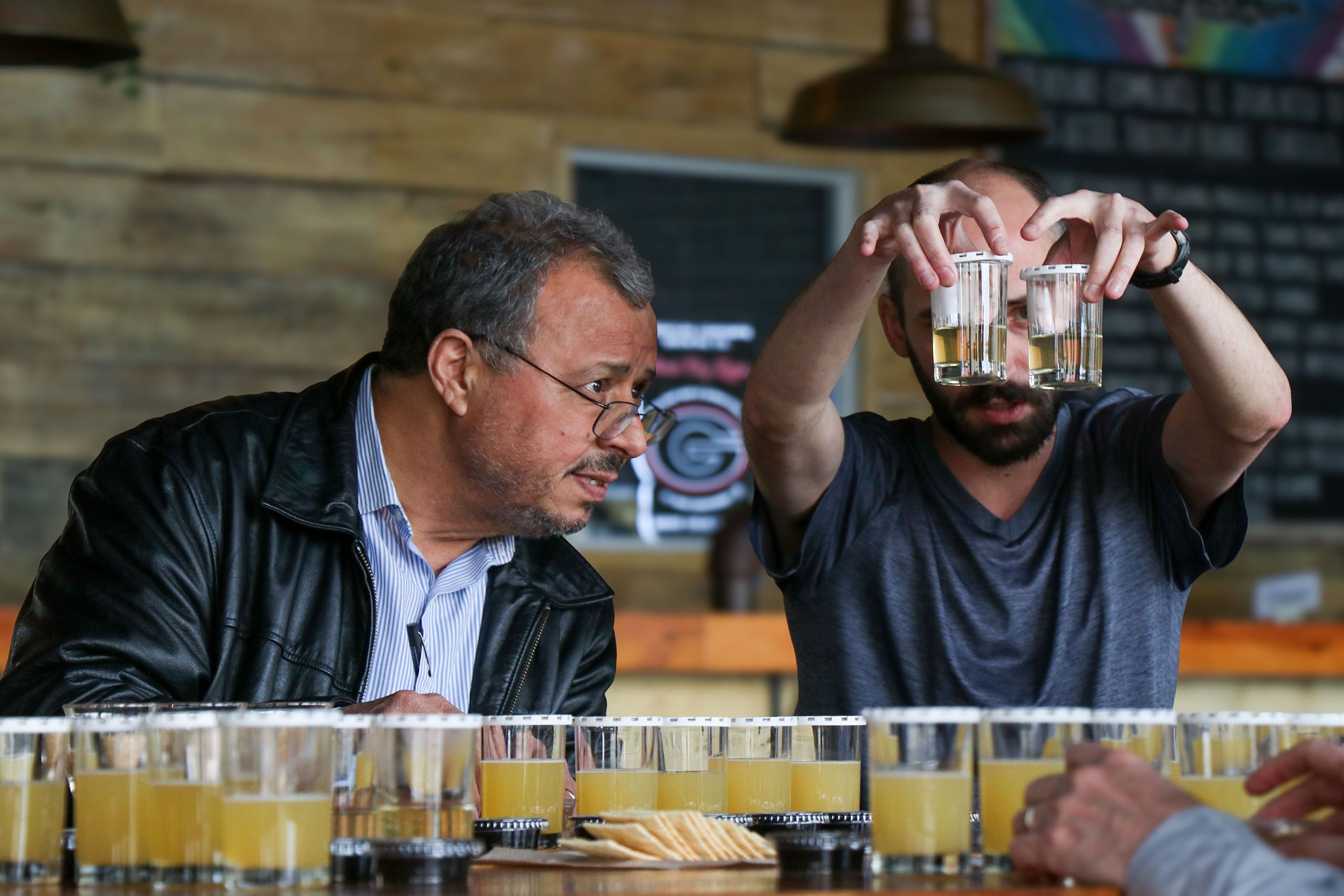
Several varieties of wheat and hops were tested to develop the final recipe.
Several varieties of wheat and hops were tested to develop the final recipe.
Beer gardening
CAES-bred wheat used in special release from Creature Comforts brewery
By Maria M. Lameiras • Photos by Katie Walker
Wheat breeders spend years meticulously crossing varieties to coax the best traits out of each species, carefully propagating plant varieties that are healthier, heartier and better suited for the environments where they are grown.
Professional brewmasters are equally painstaking when choosing the components that will give their beers a specific flavor profile.
These two exacting professions came together this spring when Athens-based Creature Comforts Brewing Co. reached out to the University of Georgia College of Agricultural and Environmental Sciences to find a sustainable wheat variety to make a good beer for a great cause.
Picking the right partner
UGA wheat breeder and geneticist Mohamed Mergoum and CAES are the latest partners to work with Creature Comforts on its annual Get Comfortable collaboration, for which they produce an annual, limited-run brew to support a communitywide effort to improve educational outcomes for local elementary school students.
“In light of Creature Comforts’ recent partnership with UGA Athletics, it seemed like the time was right to layer on another unique intersection with the university,” said Matt Stevens, senior director of community impact for Creature Comforts.
“Over the years we’ve collaborated on ingredient sourcing with UGArden, we’ve utilized UGA honey in some of our mixed fermentation projects, we’ve even co-produced events with the Willson Center for Humanities and Arts. Using our knowledge of UGA’s vast network, we set out to identify a faculty member whose research might lend itself to a beer collaboration. Given that beer is an agricultural product, CAES was a natural place to start.”
After a few initial contacts, Stevens and Creature Comforts Chief Executive Officer and Brewmaster Adam Beauchamp connected with Mergoum, whose research focuses on developing sustainable wheat varieties adapted to growing conditions in the Southeast.
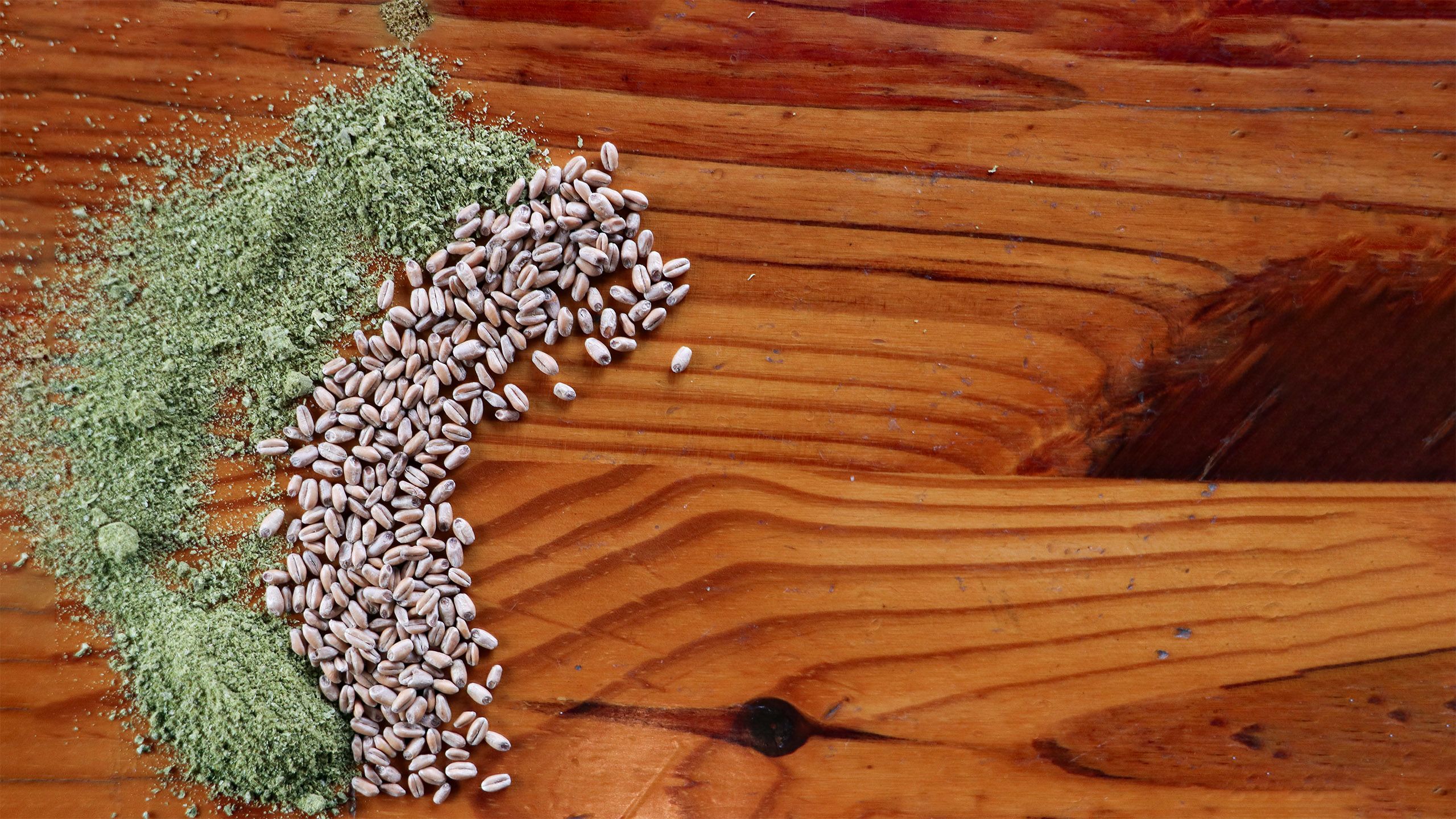
‘AGS 4023’ grows in a Plains, Georgia, field under Georgia Seed Development’s seed production program. (Photo by Ben Lopez)
‘AGS 4023’ grows in a Plains, Georgia, field under Georgia Seed Development’s seed production program. (Photo by Ben Lopez)
The sustainability equation
The trio met and determined that Mergoum’s ‘AGS 4023’ wheat would be an ideal ingredient for the 2024 Get Comfortable collaboration due to its alignment with the brewer’s commitment to sustainability. In 2021, Creature Comforts became a Certified B Corporation. This is a certification obtained by for-profit companies that leverage the influence of business to build a more inclusive, sustainable economy. Currently, 100% of the spent grain waste produced by the brewery’s processes is distributed to local cattle farms as feed, totaling approximately 7 million pounds in 2023.
While wheat is not a major crop in Georgia — it accounted for approximately 1.8% of the state’s row and forage crops in 2022 — wheat growers want high-yielding, disease-resistant varieties adapted to regional growing conditions.
Mergoum and his collaborators bred ‘AGS 4023’ as a high-yielding cultivar that is resistant to most prevalent pests including fusarium head blight — also known as scab — a destructive fungal pathogen that can cause low quality and major crop loss. Fusarium head blight also can produce a vomitoxin called deoxynivalenol (DON), which is harmful for humans and animals.
“DON causes vomiting at high levels and can cause beer gushing. This is another reason ‘AGS 4023’ was selected for this joint venture,” said Mergoum. Gushing is a vigorous overflowing of beer upon opening a bottle or can.
“Sustainable agriculture is something we’re wanting to spotlight through this year’s Get Comfortable collaboration. Breweries are needing to become more strategic about how we do our ingredient sourcing,” Stevens said. “If we can produce a viable, successful small batch using a more sustainable wheat variety, that opens up the possibility for scaling up in the future.”
Beer with a science back
Once the wheat was chosen, the work of creating a new beer began. Creature Comforts sourced the ‘AGS 4023’ wheat from Mixon Seed Service. The wheat was grown by Shepard Family Farms in Miller County, Georgia, then malted at Epiphany Craft Malt in Durham, North Carolina, a small craft malt house dedicated to improving carbon neutrality and sustainable manufacturing, Beauchamp said.
They then brewed a wheat-based beer and split it into small tanks, using a different variety of hops in each version. On Feb. 29, Mergoum, Beauchamp and a handful of Creature Comforts staff gathered for a blending lab in the brewery’s downtown Athens taproom to create the final recipe for the Get Comfortable brew.
Sitting around a table lined with cups of hops and glasses of malted wheat, they tasted each component before sampling the hazy, golden base brews. Mergoum, who does not drink, curiously smelled the samples to give his impressions.
“Wheat lightens the body of the beer and makes it easier to drink. Increasing the wheat content gives a lightness and a tanginess,” Beauchamp said. “We’re looking to find a blend of hops that will not overpower the character of this wheat. We are looking to feature the wheat front and center, but beer needs hops for balance.”
After three rounds of blending and tasting, the recipe was set. The hazy IPA has a 35% wheat content — much higher than their other beers — with a blend of Meridian and Crystal hops. According to Creature Comforts, the Get Comfortable Wheated IPA has “a hazy appearance and a delicate, gorgeous foam” and an “aroma … layered with inviting mango, orange and lemongrass.” Released on April 12, the brew is available at the Athens taproom and at local bars and restaurants and through local retailers while supplies last.
Moderator Jacob Yarbrough speaks at a Creature Comforts Get Comfortable panel at the brewery's location in downtown Athens in April 2024. From left: Yarbrough, Tyra Byers, director of the Interdisciplinary Sustainability Certificate Office of Sustainability in the Odum School of Ecology at UGA; Adam Beauchamp, and Mohamed Mergoum. (Photo by Lavi Astacio)
Moderator Jacob Yarbrough speaks at a Creature Comforts Get Comfortable panel at the brewery's location in downtown Athens in April 2024. From left: Yarbrough, Tyra Byers, director of the Interdisciplinary Sustainability Certificate Office of Sustainability in the Odum School of Ecology at UGA; Adam Beauchamp, and Mohamed Mergoum. (Photo by Lavi Astacio)
Brewing for a better future
The brewery donates 1% of its annual revenue to fund community impact work, with Get Comfortable being its flagship impact program — a cross-sector consortium where dozens of local businesses coordinate their philanthropic resources to address consensus community priorities.
In 2021, Creature Comforts consulted its advisory council — a standing body of social services professionals — to identify a single focus area with the aim of achieving a measurable impact.
Through their guidance, Get Comfortable committed to increasing the percentage of Clarke County third grade students reading on grade level from 20% to 60%. Studies show that early literacy has a measurable impact on future employment and economic development among underserved populations.
A pilot literacy mentorship program is currently in place at H.B. Stroud Elementary School in partnership with Books For Keeps, a local nonprofit that supports literacy by expanding access to books.
Through this partnership, Creature Comforts employees and community volunteers are oriented, trained and paired with select second or third grade students for the duration of the school year to provide an additional hour of one-on-one literacy instruction each week. The pilot was completed during the 2023-24 academic year and will expand into other Clarke County School District elementary schools.
According to its 2023 impact report, the generosity of Get Comfortable funders has disbursed $1.87 million to local agencies through the Get Comfortable campaign.
Mergoum is proud that his work, like much of the applied research conducted by CAES scientists, not only supports agricultural producers but can foster new ventures using UGA research products.
“I am very happy to see our cultivars used to generate products that are so different from traditional uses. What is more important for me is the ultimate purpose of this joint venture: to generate funds to help school kids in our community to improve their reading,” Mergoum said. “Every kid we help to read better will pay off in the future.”
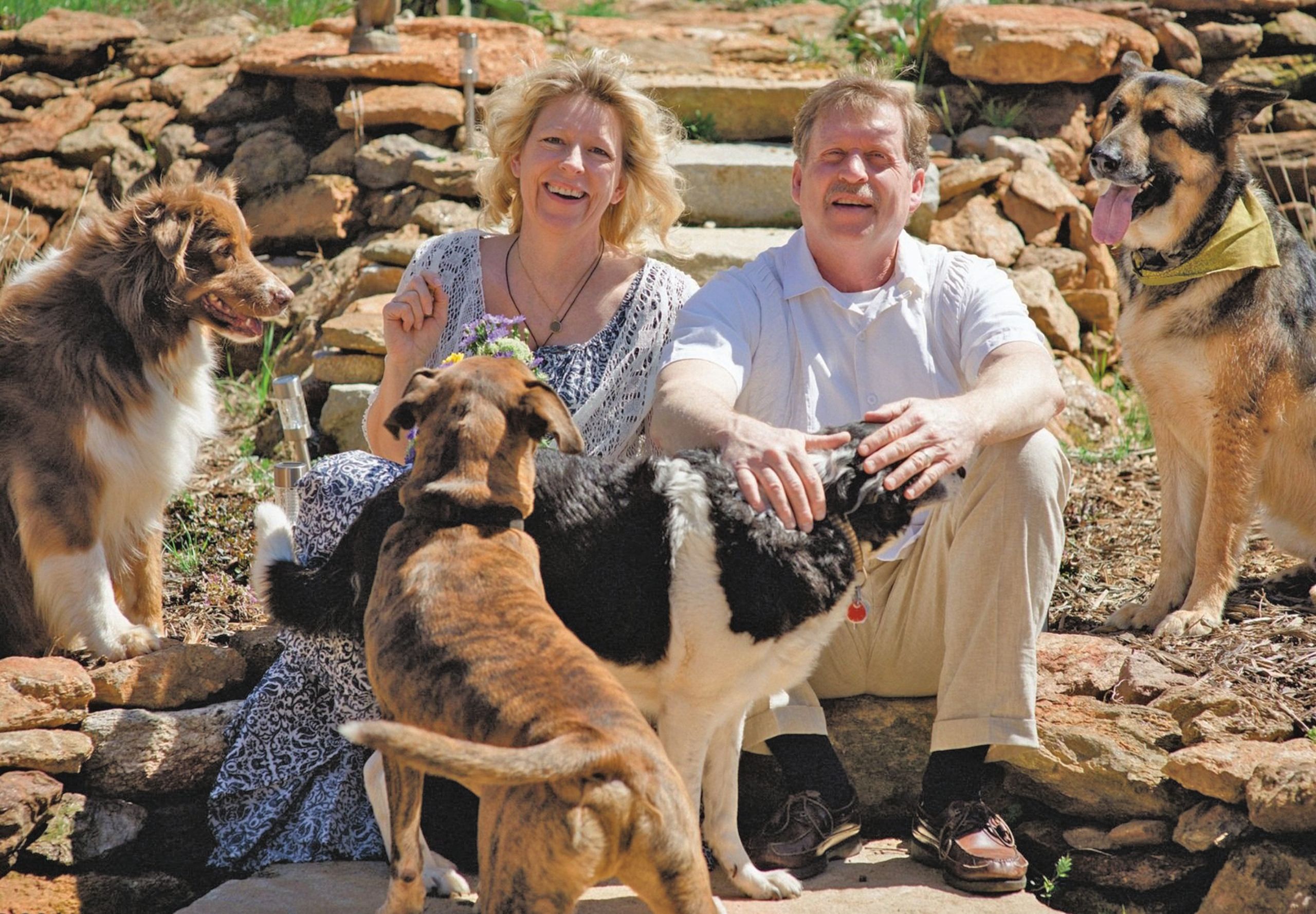
Whiskey Business
CAES alumni-owned distillery and pub supports local agriculture and creates community in Comer, Georgia
Soldier of the Sea Distillery uses local ingredients whenever possible, including corn and wheat from Madison County and honey from Danielsville, Georgia.
Soldier of the Sea Distillery uses local ingredients whenever possible, including corn and wheat from Madison County and honey from Danielsville, Georgia.
By Claire Kinnard • Photos by Benjamin Rouse
Owners Mark Davis and Jennifer Berry opened Soldier of the Sea Distillery in Comer, Georgia, in January 2023. Davis, a 1981 graduate of the College of Agricultural and Environmental Sciences, and Berry, a CAES researcher, established the distillery as a craft venture specializing in hand-forged whiskeys and bourbons made with regionally sourced honeys and grains.
Soldier of the Sea now offers four spirits: Moon Nectar, a corn whiskey; Sea Duty, a whiskey with a nod to U.S. Naval tradition; Spirit Tree, a wheated bourbon whiskey fermented with tree-derived honey; and Sword and Saber, a corn, rye and barley-based bourbon. Their pub, The Hive, adjoins the distillery itself and is open Thursday through Saturday. It offers traditional cocktails, such as an Old-Fashioned, whiskey sour and Kentucky mule.
The couple said a welcoming atmosphere and community-building mission, combined with the creation of premium spirits that honor America’s military veterans, was the goal when they formulated their business plan. Their commitment to the community encompasses all they do, including sourcing local ingredients for the whiskey itself.
“All of our suppliers, from the ones right here in Madison County to others we work with across the Southeast, started as simply that — suppliers and connections,” Davis said. “Now we consider them friends, and we’re invested in helping them succeed in their work to make a living and feed others.”
While the barley and rye needed to make their whiskeys are not readily available in Georgia, Davis and Berry source locally wherever possible, including organic corn and wheat grown by DaySpring Farms in Madison County and honey from Booger Hill Bee Company in Danielsville, Georgia.
With a virtually nonexistent environmental footprint — all of the distillery’s byproducts are used by local farmers to feed their livestock — Soldier of the Sea is committed to creating long-lasting, mutually beneficial relationships within the agricultural community in the area and beyond.
Davis and Berry are proud of the work they have done so far, are excited about the future and are focused on staying true to their original missions: to honor all branches of the American military, to support local agriculture in tangible ways, and to promote the protection of pollinators that make their whiskeys possible.
“It was important to know what was important to us because we believe that everyone can do something to support causes they care about,” Davis said. “For us, we care about the military, agriculture, pollinators and making good whiskey — opening Soldier of the Sea is how we’re doing something about those things.”

Supakana Nagachinta, an owner and co-founder of the Oak House Distillery, demonstrates the use of distilling equipment.
Supakana Nagachinta, an owner and co-founder of the Oak House Distillery, demonstrates the use of distilling equipment.
Distilling a legacy
CAES alumnus blends science, family and culture to found Athens distillery
Story and photos by Lillian Dickens
Opened in the historic Henry Bishop house on Macon Highway in 2023, Oak House Distillery became the first legal distillery in Athens, Georgia, since the 1860s.
Supakana Nagachinta, an owner and co-founder of the distillery, earned both her master’s degree and doctorate in food science from the College of Agricultural and Environmental Sciences Department of Food Science and Technology, where she studied distillation and flavor extraction under Distinguished Research Professor Casimir Akoh.
Oak House Distillery’s first product on the market was Robert’s No. 1 American Dry Gin, which was named after Nagachinta’s husband and co-founder, Rob Woods, and his father, Robert Woods.
“One of my husband’s friends was making his own beer, so we decided to make our own gin to trade with him when we went to visit Canada for Christmas,” she said. “After coming back, we changed the original recipe a little ... and all of our other friends loved it. My husband said to me, ‘I think we really have something here,’ so we decided to open a business.”

